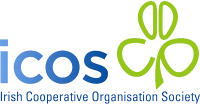
Damien O'Reilly
EU Affairs and Communication Manager, ICOS
Letter from Brussels
It’s holiday time and expats head home for the month. But, there is still a lot happening as the new Parliament and Commission continue to take shape. New MEPs have been finding their way around here since the June election, from looking for a place to live, to finding committees to sit on.
There are more than 20 committees spanning all areas of European policy, industry, and society. The ones we keep an eye on are the agricultural committee and the environmental committee. These committees do the spadework when it comes to studying, amending, and adopting the legislation proposals from the Commission. It is these committees that liaise with Member State ministers and the various lobby groups with an interest in the broad agri-food spectrum as pieces of legislation delicately move through the, sometimes years-long, legislative process.
Three Irish MEPs will sit on the agriculture committee, or ComAgri as it is better known: Fianna Fáil’s Barry Cowen; Maria Walsh of Fine Gael; and independent MEP, Luke ‘Ming’ Flanagan. And, on the environmental committee, or ComEnvi as it is better known, Sinn Féin’s Lynn Boylan is the sole Irish full committee member.
The remaining 10 MEPs are scattered across many other committees of interest to them.
The focus now switches to the EU Commission. The next big task for the MEPs is to act as job interviewers as the committees will have the pleasure of grilling the commissioner candidates relevant to their committee. So, the agricultural committee will quiz whoever is nominated by Commission president, Ursula von der Leyen to be the next agriculture commissioner. At time of writing, the favourite for the job is the Luxembourg commissioner, Cristoph Hansen. He is aligned to the European Peoples Party (EPP), which would be seen as broadly supportive of farmers, and of which Fine Gael is a member.
President von der Leyen herself comfortably returned as Commission president for a second term despite rumours that she would struggle to get the bare minimum number of MEP votes to get across the line. In the end, she had well over 100 votes to spare, so she continues to command the position as arguably the most powerful politician in the EU. Right now, her first job is looking for each Member State to nominate a male and female candidate to chose from in order to fill her 26 commissionerships. Ireland has already nominated Michael McGrath and might be inclined to tell the EU where to go with their demand of a female candidate considering that they are nominating such a senior minister.
The four Fine Gael MEPs were the only Irish MEPs to support her in that crucial Parliament vote last month with the four Fianna Fáil MEPs among those not to support her. This will not go unnoticed by President von der Leyen. Could it impact on the quality of the post given to Michael McGrath in the autumn? Cynics would say it will. We will know soon enough.
Of course, that all means that Mairead McGuinness’s 20-year political career in Brussels is coming to an end in November. Mairead made a big impact there and had climbed the ladder to vice-president of the European Parliament before successfully being appointed as EU Commissioner replacing Phil Hogan in the wake of ‘golfgate’ – remember that? She was a great ally for farmers in the Commission even if her portfolio wasn’t necessarily anything to do with farming and she was always more than happy to engage with Irish co-op and farm groups visiting Brussels, and listen to their concerns. Mairead wanted to stay on in the role but party politics at home meant there was no hope of that happening. She can look back at her stint in Brussels extremely positively and all eyes will be on her next move.






